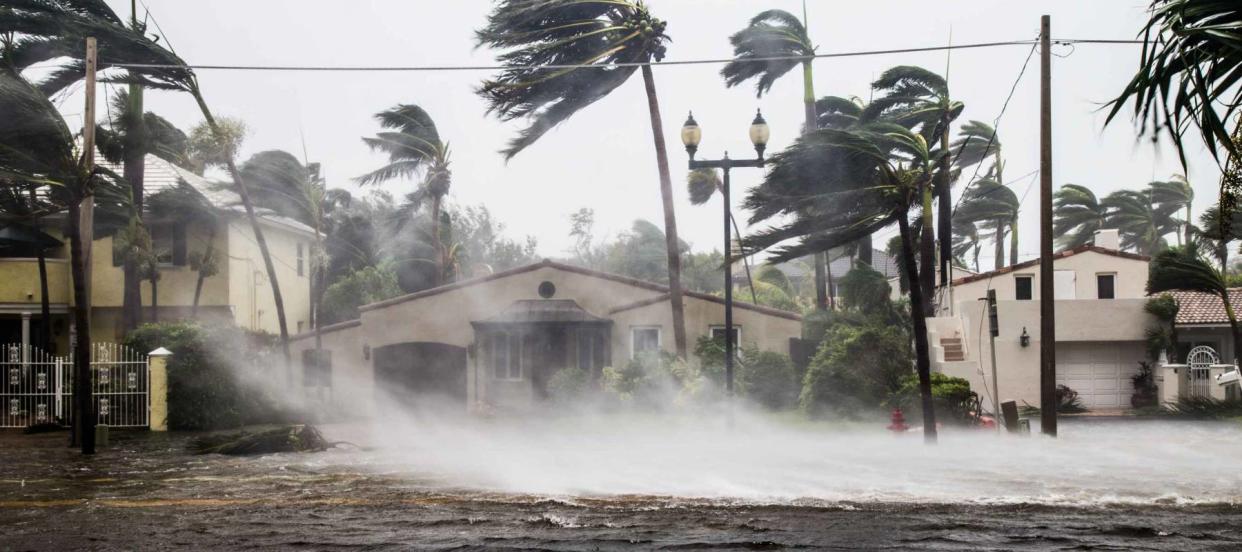Insurers are cutting off homeowners in hurricane zones — what if that's you?

Tens of thousands of homeowners recently lost their homeowners insurance and may not even know it.
With hurricane season approaching, three property insurance companies have dropped 53,000 customers in Florida, according to reports in the Orlando Sentinel and other local outlets.
For years, the Sunshine State has been dealing with a deluge of insurance fraud and litigation claims.
Now, with permission from the Office of Insurance Regulation (OIR), Universal Insurance of North America, Gulfstream Property & Casualty and Southern Fidelity have chosen to cancel thousands of homeowners’ policies.
Here’s how to find out whether your homeowners insurance policy may be at risk and what you can do to keep costs low even in a high-risk area.
What’s the issue?

With hurricane season set to start June 1, insurers made the drastic move of canceling thousands of policies with a goal of reducing their potential losses this year.
Insurers assert they’ve seen huge numbers of claims from contractors or unlicensed agents in the area over the last few years, especially for roof repairs that the insurers believe didn’t actually experience the extent of damage being claimed.
And in a letter to the Florida state legislature, OIR Commissioner David Altmaier stated that more than 75% of claims litigation across the entire country takes place in Florida.
Some homeowners should receive a notice from their insurance company that their policy is being dropped, but others may not.
And even if you do get a notice, you may have as little as 45 days to find new coverage for your home.
Although the policies being dropped are concentrated in Florida, this year’s hurricane season will record above-normal activity, according to a Colorado State University forecast, and other states along the Gulf Coast, like Mississippi, Louisiana and Texas are at risk of storm damage.
In 2020, the season produced a record-breaking 30 storms — compared to the typical year’s 12.
With the number and intensity of storms ticking up, hurricane claims could soon start to impact more than just Florida residents, vacation-home owners and retirees in the state.
What can you do?

Because not all policyholders have been notified by their insurer that they’ve been dropped, you’ll definitely want to touch base and confirm whether you still have coverage.
If your policy has been canceled or nonrenewed, you’ll want to move quickly to lock in new coverage before hurricane season starts.
With tropical storms already starting to be recorded in the area, there’s no time to delay.
Replacement coverage options
Finding replacement coverage may be a challenge for some homeowners.
If you’re in an older home in Florida or have special circumstances, you may want to consider the Florida Surplus Lines Service Office or the state-run Citizens Property Insurance.
Otherwise, you could be put into forced-placement coverage, which is much more expensive and doesn’t allow homeowners to sue over disputed claims or cover personal property or bodily injuries in the home.
And these options are only meant to be a last resort for homeowners who can’t find replacement coverage elsewhere.
Where do you go from there?

If you’ve lost your property insurance, the very first thing you should do is shop around for a new policy.
With Citizens Property Insurance, you’ll have to prove you couldn’t find an alternative from the private market.
Experts will suggest you seek out at least three to five quotes before settling on a single offer. And in comparing rates, you may stumble across a better deal than if you went to your last resort option first.
More ways to shelter your finances

If your homeowners insurance premium is about to go up or you’re left scrambling to find affordable coverage, you may need to rearrange your budget to find some extra cash.
Fortunately, you have a few options to do just that without the typical pain of budget-crunching.
Make saving your policy. When was the last time you looked for a better price on car insurance, which also protects against hurricane damage through comprehensive coverage? If it’s been a while, it may be costing you more than $1,000 extra every year. Shop around for car insurance to ensure you’re paying the best possible rate.
Cut down your debt payments. Credit cards can help in emergencies, but their high interest rates will cost a ton in the long run. If you find yourself relying heavily on plastic to get you through an emergency, reduce your monthly payments and get out of debt sooner by rolling all of your balances into a lower-interest debt consolidation loan.
Get a better rate with a refi. If you’re a homeowner and you haven't refinanced your loan in the last year, you could be missing out on incredible savings. Across the country, 14.1 million homeowners could save an average $287 a month through a refi, according to mortgage data and technology provider Black Knight.

